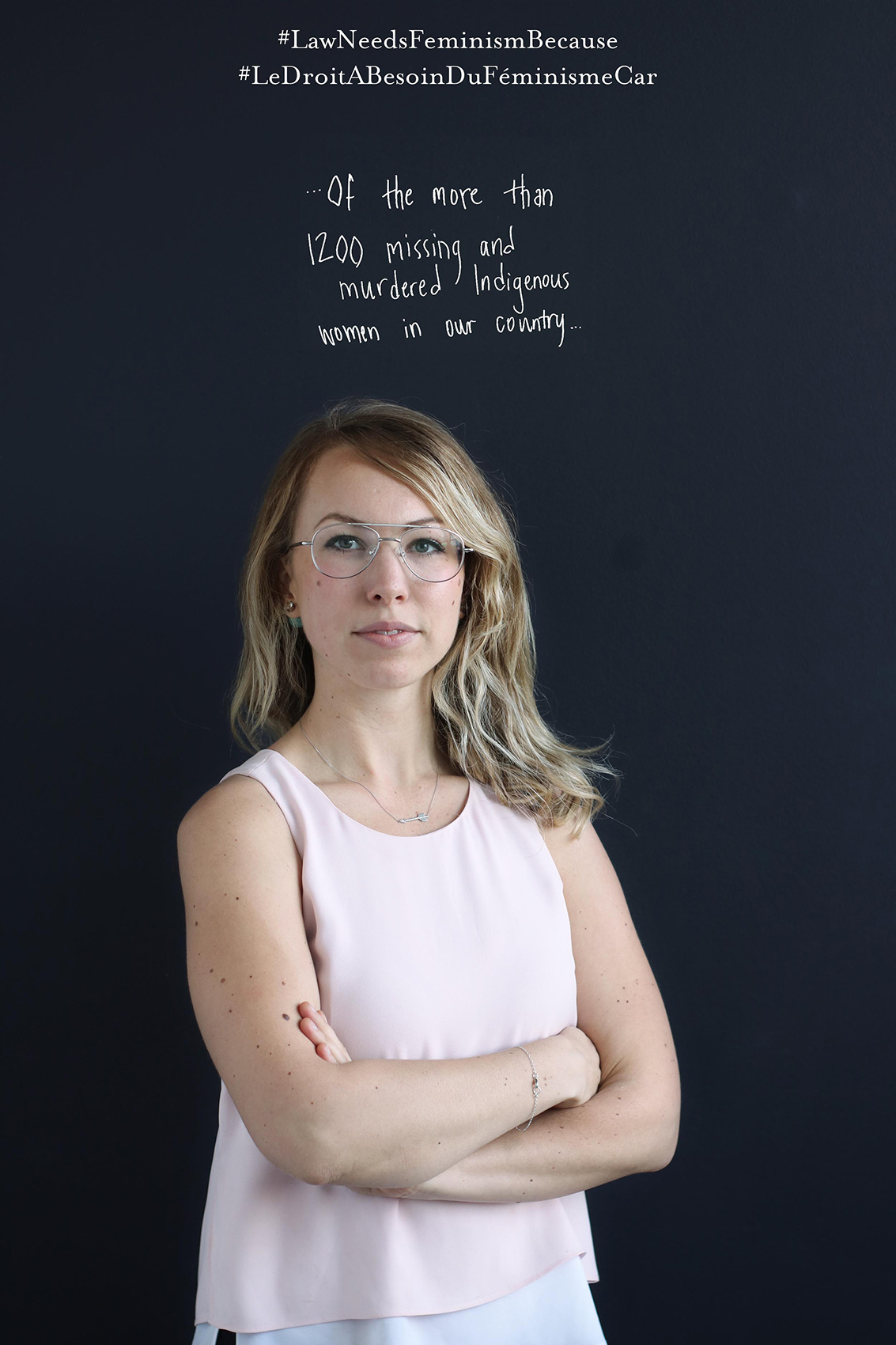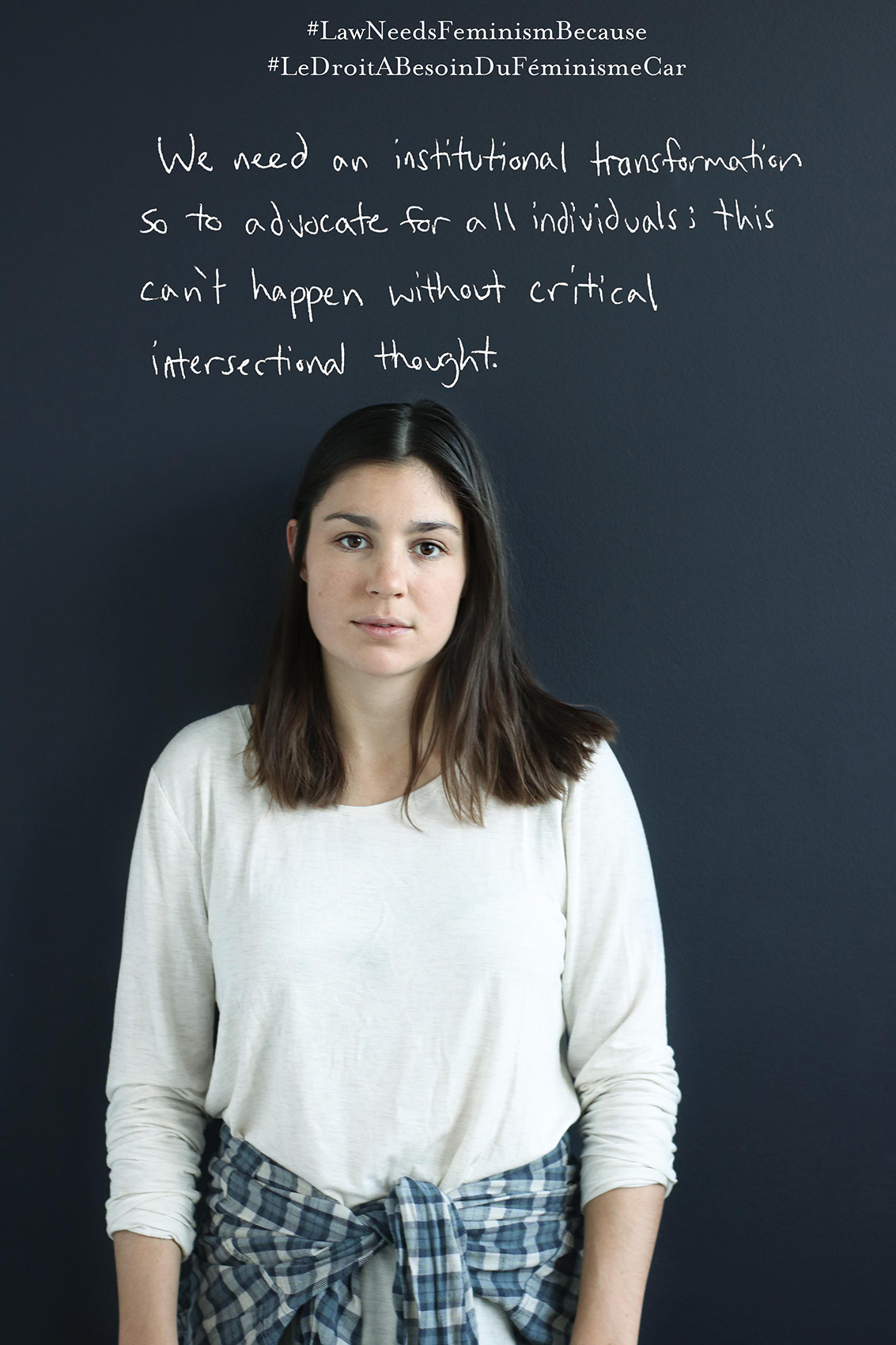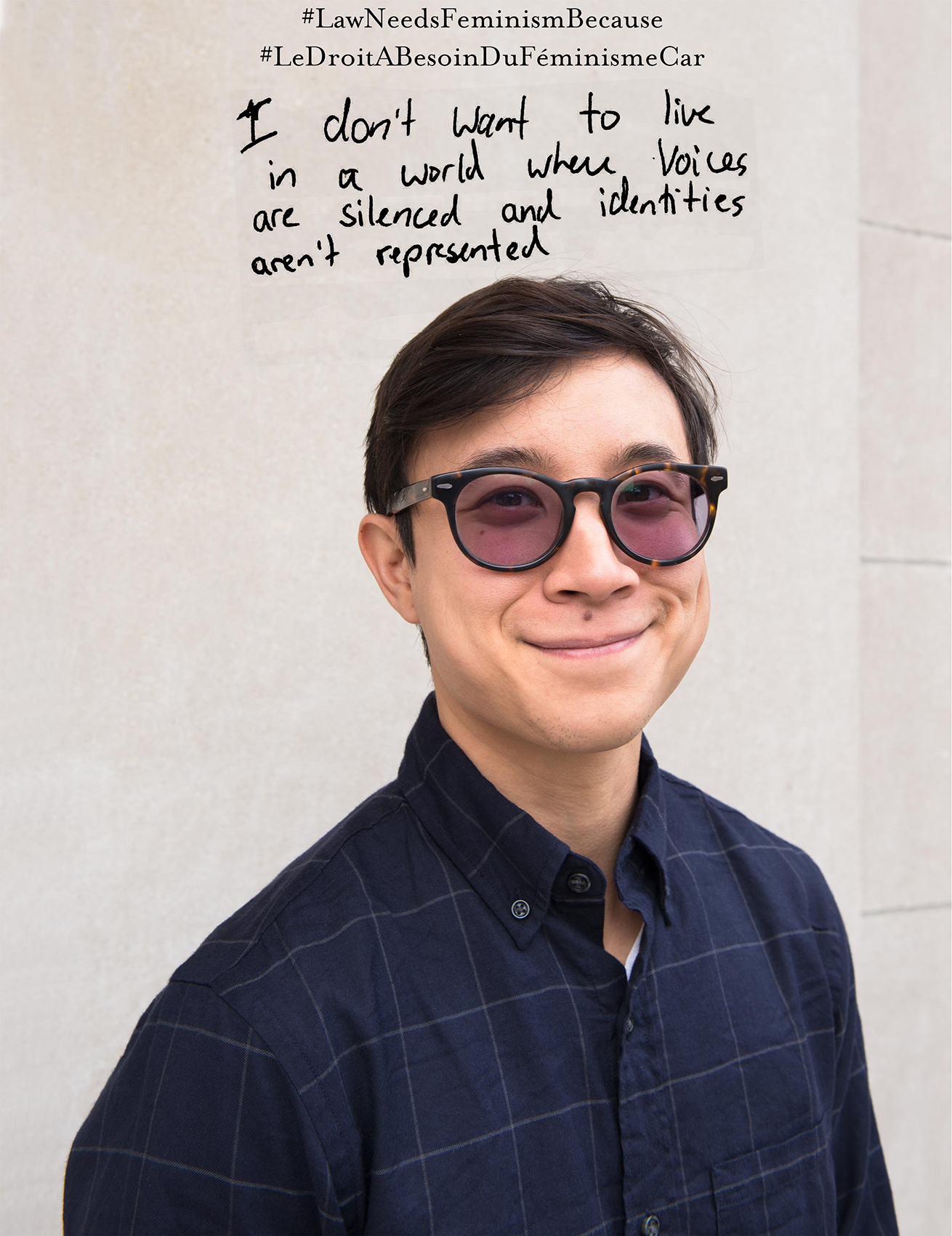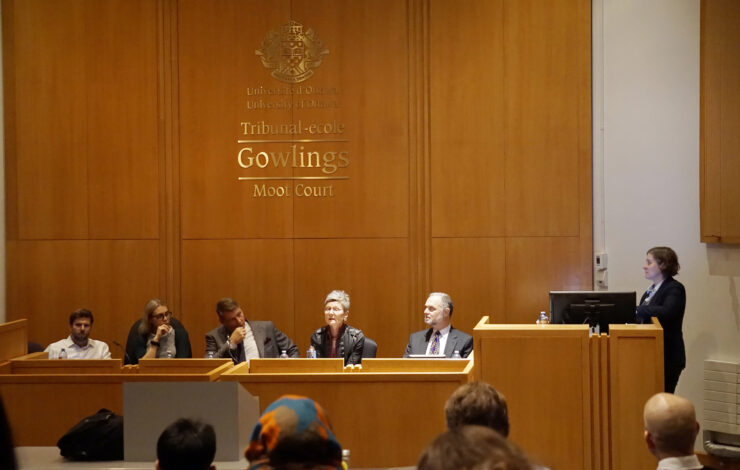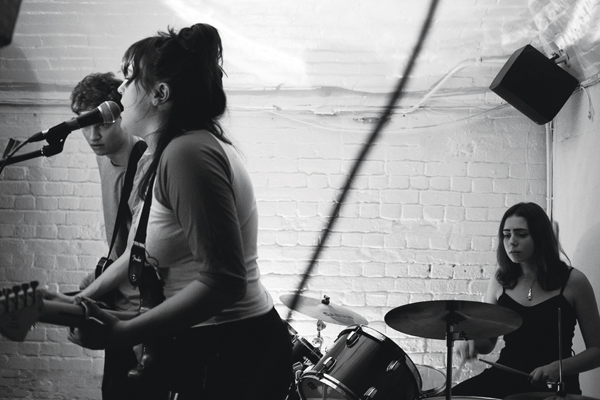New club works toward first annual national forum, elevating marginalized voices
A group of University of Ottawa law students are using photography to bring issues such as intersectional representation and the inquiry on missing and murdered Indigenous women to the forefront of the law.
The Law Needs Feminism Because (LNFB) club was established in the summer of 2016 by Zaynab Al-Waadh, a U of O common law student, and her fellow U of O law classmates Paulina Vengeroff and Sarah Quayyum, following a photo campaign of the same name held at McGill University.
The original photo campaign was started by the Feminist Collective of McGill Law “to spark an ever-growing conversation in the law schools, and by extension the legal field, as to why the legal institution needs feminist principles,” said Al-Waadh.
According to the U of O law student, the original photo campaign “has morphed and grown into what it is today—a collection of beautiful and eye-opening portraits forming an archive of the current wave of both practicing and upcoming legal voices.”
“I think the next step is to consolidate these photos and try to understand in what way we can liaise with academics and institutions on the ground to tangibly address issues like racialized experiences, the wage gap, legal accessibility concerns, and mental health.”
This campaign caught the attention of the Huffington Post and the CBC, and eventually, Al-Waadh got on board to start a chapter of the new club at the U of O.
According to Al-Waadh, the current team of 11 women has “the intention of openly engaging the faculty and student body in a critical conversation as to why feminist principles—those that challenge power structures that either implicitly or explicitly exacerbate institutionalized disenfranchisement and micro-aggressions—are as relevant and necessary today as they have ever been in history.”
Aside from the photo campaign, Al-Waadh and her colleagues are currently working towards their first annual national forum with 10 other law schools in the country, which is set to take place on March 11 at the 8 Queen Sid Lee venue in Montreal.
“This forum will be a place to consolidate this past year’s worth of portraits,” said Al-Waadh. “We will hopefully begin conceptualizing how we can move these conversations further into tangible outcomes.”
The forum will feature academics, students, and legal professionals to discuss topics such as mentorship, firms and recruitment, student experience, and alternative legal career paths.
Following events like the enactment of the United States travel ban, which targeted seven Muslim-majority countries, and the shooting at the Islamic Cultural Centre of Quebec City, LNFB partnered with other groups to launch several other initiatives.
Some of these initiatives included letter-writing stations to members of parliament, a solidarity night for law students and faculty members, and a February Canada-wide Research-a-thon, where 22 law schools supported advocacy in challenging the Canada-U.S. Safe Third Country Agreement.
“We genuinely hope to spark discussions that in turn break barriers,” said Al-Waadh. “Inevitably, there is always the fear (as in any social movement entering into the mainstream) that the conversations that ensue only serve to neutralize the potential impact this campaign has.”
But Al-Waadh believes that students should care about the campaign nonetheless “because there is a genuine potential for elevating marginalized voices on a national scale.”
“We are a generation of future legal professionals who will have both the tools and the stamina to transform our legal institutions and the way we understand and practice the law.”
To learn more information about LNFB club, please visit their official website here.
In a March 1 email to the Fulcrum, Al-Waadh said that the University of Ottawa’s Faculty of Law is collaborating on the national forum with 10 other law schools in Canada. The article has been updated to reflect this change.



